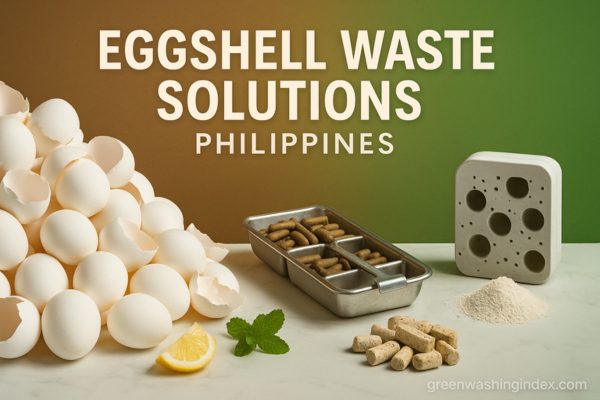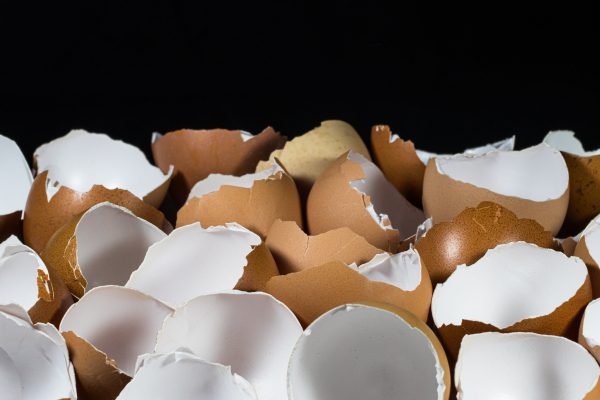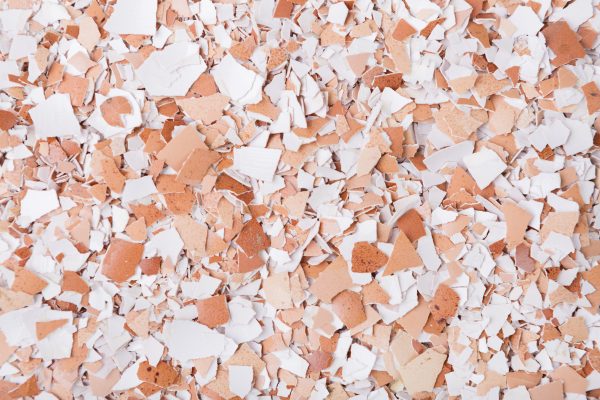

Picture this: every single day, the Philippines generates a staggering 4,020 metric tons of eggshell waste. That’s equivalent to the weight of about 800 elephants being discarded daily from our breakfast tables and food industries. This mountain of discarded shells represents both an environmental crisis and an untapped goldmine of sustainable opportunities.
The good news? Innovative Filipino researchers and entrepreneurs are transforming what we once considered worthless waste into valuable resources. From cleaning oil spills to creating medical implants, recycled eggshells are proving that one person’s trash truly can become another’s treasure. Let’s explore how the Philippines can turn its 4.24 million tons of annual eggshell waste into environmental and economic victories.
This comprehensive guide will walk you through the current state of eggshell waste in the Philippines, its environmental impact, groundbreaking recycling methods, and practical solutions you can implement today. Whether you’re a concerned citizen, business owner, or policymaker, you’ll discover actionable strategies to tackle this growing challenge.

The numbers tell a sobering story about eggshell waste in the Philippines. In 2019, the country produced approximately 63.28 thousand metric tons of eggshell waste. Fast forward to 2022, and this figure exploded to an astounding 4.24 million tons annually.
This dramatic increase reflects the Philippines’ growing poultry industry and rising egg consumption. The daily generation of 4,020 metric tons means that every Filipino contributes to this waste stream, whether through direct consumption or processed food products.
Looking at the growth trajectory, experts project that eggshell waste could surpass 5 million tons after 2025 if current consumption patterns continue. This escalation demands immediate attention and innovative solutions to prevent overwhelming our already strained waste management systems.
The poultry industry stands as the primary contributor to eggshell waste generation in the Philippines. Large-scale egg production facilities, processing plants, and hatcheries account for approximately 70% of total eggshell waste. These industrial operations generate concentrated waste streams that offer the best opportunities for large-scale recycling initiatives.
Household consumption represents the second major source, contributing about 20% of total waste. With millions of Filipino families consuming eggs daily, residential areas produce a dispersed but significant waste stream. The remaining 10% comes from commercial establishments like restaurants, bakeries, and food manufacturers.
Understanding these sources helps in designing targeted collection and recycling strategies. Industrial sources offer economies of scale, while household and commercial waste requires community-based approaches for effective management.
Central Luzon emerges as the epicenter of eggshell waste generation, producing nearly 40% of the national total. This concentration stems from the region’s dominance in poultry farming, particularly in Pampanga and Bulacan provinces. The proximity to Metro Manila’s massive consumer market drives this intensive production.
CALABARZON follows as the second-largest contributor, generating approximately 25% of eggshell waste. The region’s mix of commercial farms and proximity to urban centers creates unique challenges for waste collection and processing. Meanwhile, Mindanao’s growing poultry sector contributes about 15% of national eggshell waste.
Urban areas face different challenges than rural regions. Cities struggle with limited space for waste processing, while rural areas lack the infrastructure for efficient collection. This geographic diversity requires tailored solutions that consider local conditions and capabilities.
Eggshells present a unique decomposition challenge due to their remarkable chemical composition. Consisting of 94-97% calcium carbonate, these shells possess a crystalline structure that resists natural breakdown. This same durability that protects developing chicks becomes an environmental burden in landfills.
The polycrystalline nature of eggshells creates a barrier against microbial decomposition. Unlike organic materials that readily break down, calcium carbonate requires specific conditions to decompose. In typical landfill environments, eggshells can persist for hundreds of years without significant degradation.
Temperature, moisture, and pH levels all affect decomposition rates. Philippine landfills, with their tropical conditions, might accelerate breakdown slightly, but the process remains painfully slow. This persistence means today’s discarded eggshells could still be intact when your great-grandchildren are adults.
When eggshells accumulate in landfills, they create multiple environmental problems. The sheer volume displaces valuable landfill space that could accommodate truly non-recyclable waste. With Philippine landfills already operating beyond capacity, every ton of eggshells exacerbates the crisis.
Improperly disposed eggshells can leach minerals into soil and groundwater systems. While calcium itself isn’t toxic, excessive concentrations alter soil chemistry and affect plant growth. In coastal areas, runoff containing dissolved eggshell minerals can disrupt marine ecosystems and coral reef health.
The waste also attracts pests and creates odor problems in communities near disposal sites. Rotting egg residues on shells breed bacteria and attract rodents, creating public health concerns. These impacts disproportionately affect low-income communities living near waste facilities.
The U.S. Environmental Protection Agency’s classification of eggshell waste as the 15th largest food industry pollutant underscores its global significance. This ranking considers both volume and environmental impact, placing eggshells among the most problematic food wastes worldwide.
In the Philippine context, this classification carries extra weight given our limited land area and dense population. Unlike larger countries that can absorb waste impacts across vast territories, the Philippines faces concentrated environmental pressures. Every ton of eggshell waste has magnified effects in our island ecosystem.
The classification also highlights missed opportunities for resource recovery. While other top food pollutants like used cooking oil have established recycling industries, eggshell recycling remains underdeveloped. This gap represents both a challenge and an opportunity for Philippine entrepreneurs and policymakers.
Many people assume “biodegradable” and “compostable” mean the same thing, but important distinctions exist. Eggshells are technically biodegradable because they eventually break down through natural processes. However, this degradation occurs over centuries rather than the weeks or months associated with truly compostable materials.
Are eggshells biodegradable in practical terms? Yes, but with significant caveats. The high calcium carbonate content requires specific conditions for breakdown, including acidic environments and mechanical weathering. Standard composting conditions struggle to decompose eggshells effectively without preprocessing.
The difference matters for waste management strategies. While you can add crushed eggshells to compost bins, they won’t decompose like vegetable scraps. Instead, they provide long-term calcium supplementation to finished compost. Understanding these nuances helps design effective recycling programs.
In natural environments, eggshell decomposition follows a slow, multi-stage process. Initial breakdown begins with the removal of the protein membrane, which occurs within weeks under moist conditions. However, the calcium carbonate shell itself resists decomposition for decades or even centuries.
Acidic conditions accelerate breakdown by dissolving calcium carbonate. In forest soils with naturally low pH, eggshells might decompose within 5-10 years. However, in neutral or alkaline conditions common in Philippine soils, the process extends to 50-100 years or more.
Weather plays a crucial role in natural decomposition. The Philippines’ alternating wet and dry seasons create expansion-contraction cycles that gradually fragment shells. Heavy rains provide the moisture needed for chemical breakdown, while intense sun causes physical weathering. Still, complete decomposition requires patience measured in generations.

The Philippine Department of Science and Technology’s Industrial Technology Development Institute achieved a remarkable breakthrough in eggshell recycling. Their research team, led by Emelda Ongo, developed a composite material combining chitosan from shrimp shells with calcium carbonate from eggshells.
This innovative mixture achieves an astounding 99.9% oil removal rate from contaminated water. The 50:50 composite works equally well with diesel and bunker fuel, addressing various marine pollution scenarios. Both flake and granular forms of the composite showed exceptional performance in removing petroleum products.
The technology’s beauty lies in transforming two waste products into an environmental solution. By recycling eggshells into oil spill cleanup materials, the Philippines can address multiple environmental challenges simultaneously. This innovation exemplifies how creative thinking can turn waste problems into sustainable solutions.
Research demonstrates that processed eggshells excel at removing heavy metals from contaminated water. Studies show removal rates of up to 73% for cadmium, with optimal conditions achieving even higher efficiency. The calcium carbonate structure acts as a natural adsorbent for toxic metals.
Lead, copper, and zinc removal follows similar patterns, with eggshell-based adsorbents matching or exceeding conventional treatment methods. The process works through ion exchange and surface adsorption mechanisms. Treated eggshells can remove multiple contaminants simultaneously, making them ideal for complex wastewater scenarios.
Cost comparisons reveal significant advantages over traditional treatment methods. While commercial adsorbents can cost thousands of pesos per kilogram, processed eggshells cost virtually nothing beyond collection and preparation. This economic advantage makes water treatment accessible to communities previously unable to afford cleanup technologies.
The construction sector presents massive opportunities for eggshell waste recycling. Ground eggshells serve as partial cement replacement in concrete production, reducing both costs and environmental impact. Studies show that replacing 5-30% of cement with eggshell powder maintains structural integrity while improving sustainability.
In asphalt production, eggshell powder acts as a mineral filler, enhancing pavement durability. The calcium carbonate content improves binding properties and reduces the need for virgin limestone extraction. Philippine road construction projects could significantly benefit from this application given our extensive infrastructure needs.
Sustainable building materials incorporating eggshells include eco-friendly bricks, tiles, and insulation products. These applications align with global green building trends while addressing local waste challenges. Early adopters in the Philippine construction industry report cost savings of 15-20% when using eggshell-based materials.
Farmers have long recognized eggshells’ value as soil amendments, but modern processing unlocks greater benefits. Finely ground eggshells provide slow-release calcium supplementation, essential for crop development. Unlike commercial lime, eggshell calcium releases gradually, preventing nutrient shock.
The shells’ pH-balancing properties benefit acidic Philippine soils, particularly in Mindanao and Visayas regions. A single application of processed eggshells can improve soil chemistry for 2-3 growing seasons. This longevity makes eggshell amendments cost-effective for small-scale farmers.
Organic fertilizer production represents another agricultural application. Combining eggshells with other organic waste creates nutrient-rich fertilizers suitable for sustainable farming. These products support the Philippines’ growing organic agriculture sector while reducing chemical fertilizer dependence.
Thermal treatment through calcination transforms ordinary eggshells into highly valuable industrial materials. The process involves heating shells to temperatures between 500-1000°C for 2-4 hours. This controlled heating drives off organic compounds and modifies the calcium carbonate structure.
Different temperatures yield different products with varied applications. Lower temperatures (500-700°C) produce activated calcium carbonate suitable for environmental applications. Higher temperatures (800-1000°C) create calcium oxide, valuable for industrial processes. The specific temperature profile determines final product characteristics.
Equipment requirements range from simple kilns for small-scale operations to sophisticated furnaces for industrial production. Energy efficiency improves with proper insulation and heat recovery systems. Philippine entrepreneurs can start with basic setups and scale up as demand grows.
The DLSU research identified seven distinct applications for thermally treated eggshells:
Each application offers unique economic opportunities. Biodiesel producers report 20-30% cost reductions using eggshell catalysts. Water treatment facilities achieve similar savings while improving purification efficiency. The versatility of calcined eggshells supports diverse business models.
Industrial implementation requires quality control and standardization. Consistent particle size, purity levels, and thermal treatment parameters ensure reliable performance. Philippine standards development could position the country as a regional leader in eggshell-based industrial materials.
The transformation of eggshell waste into medical-grade hydroxyapatite represents one of recycling’s most valuable applications. This calcium phosphate compound closely mimics human bone composition, making it ideal for surgical implants. The production process converts waste into life-saving medical materials.
Philippine hospitals spend millions importing bone graft materials annually. Local hydroxyapatite production from eggshells could reduce costs by 60-70% while maintaining quality standards. The biocompatibility of eggshell-derived materials matches or exceeds synthetic alternatives.
The production process requires careful control but uses relatively simple chemistry. Eggshells react with phosphoric acid under controlled conditions to form hydroxyapatite crystals. These crystals undergo purification and sterilization before medical use. Local production could revolutionize Philippine healthcare accessibility.
Beyond bone grafts, eggshell-derived bioceramics serve numerous dental applications. These materials work in dental implants, cavity fillings, and jaw reconstruction procedures. The natural origin provides advantages over synthetic materials in terms of patient acceptance and healing.
Cost reductions in dental care could dramatically improve oral health access across the Philippines. Current imported dental ceramics price many procedures beyond average Filipino budgets. Local production using eggshell waste could reduce costs while maintaining international quality standards.
Manufacturing opportunities exist at various scales. Small dental laboratories could produce custom materials for local practices. Larger facilities might supply regional markets or export to neighboring countries. The technology transfer requirements remain manageable for Philippine entrepreneurs.
Starting eggshell recycling at home requires simple preparation steps. First, rinse shells immediately after use to remove albumin residues. This prevents odor and bacterial growth during storage. Allow shells to air dry completely before storage or processing.
Crushing shells increases their utility for various applications. Use a mortar and pestle, rolling pin, or blender to achieve desired fineness. For garden use, coarse crushing suffices. Finer grinding suits craftwork or beauty applications. Store crushed shells in airtight containers to maintain quality.
Creative household uses abound beyond traditional composting. Add crushed shells to homemade cleaning products as gentle abrasives. Use them in potted plants for drainage and calcium supplementation. Create natural pest deterrents by spreading crushed shells around garden beds.
Businesses generating significant eggshell waste need systematic collection approaches. Restaurants and bakeries should designate separate bins for shell collection. Daily removal prevents odor issues while maintaining workplace hygiene. Partner with local recyclers or establish in-house processing systems.
Processing equipment scales with operation size. Small businesses might use commercial grinders and basic drying equipment. Larger operations benefit from industrial crushers, conveyors, and thermal processing units. Initial investments pay back through reduced waste fees and potential product sales.
Partnership opportunities exist throughout the value chain. Connect with agricultural cooperatives seeking soil amendments. Supply construction companies experimenting with sustainable materials. Collaborate with research institutions developing new applications. These partnerships create win-win scenarios for waste reduction.
Barangay-level initiatives offer powerful models for community eggshell recycling. Successful programs start with education about environmental impacts and recycling benefits. Regular collection schedules and convenient drop-off points encourage participation. Visible results maintain community engagement.
School recycling projects teach environmental responsibility while generating useful products. Students can create eggshell crafts, grow seedlings in shell planters, or produce calcium supplements for school gardens. Science fair projects exploring eggshell applications inspire young innovators.
Several Philippine communities demonstrate successful eggshell recycling. Marikina City’s urban gardening program uses eggshell compost extensively. Bohol fishing communities employ eggshell-based water purification. These examples prove that community-scale recycling works with proper organization and support.
The eggshell recycling industry offers diverse business opportunities for Filipino entrepreneurs. Collection and aggregation services provide entry-level opportunities requiring minimal capital. Operators can start with tricycle-based collection routes and scale up to truck operations.
Processing facilities represent mid-level investments with higher returns. Basic grinding and packaging operations might require ₱500,000-₱1 million initial capital. Advanced thermal processing facilities need ₱5-10 million but access premium markets. Return on investment typically occurs within 2-3 years.
Market demand continues growing across multiple sectors. Agricultural suppliers seek organic calcium sources. Construction companies want sustainable materials. Medical device manufacturers need biocompatible ceramics. This diverse demand supports various specialized business models.
Eggshell recycling creates employment across skill levels. Collection operations employ drivers, sorters, and logistics coordinators. Processing facilities need machine operators, quality control staff, and maintenance teams. Sales and distribution create additional white-collar opportunities.
Technical training programs prepare workers for specialized roles. Thermal processing operators require safety training and equipment knowledge. Quality control positions need basic chemistry understanding. These skills remain transferable to other recycling and manufacturing sectors.
Government support through DTI and DOST accelerates sector development. Livelihood programs teaching eggshell craft production empower home-based workers. Cooperative models allow small producers to access larger markets. These initiatives transform waste management into economic development.
Contamination represents the most common recycling mistake. Mixing eggshells with non-biodegradable materials ruins entire batches. Shells containing synthetic dyes or coatings require separate handling. Proper waste segregation starts at the source to prevent these issues.
Processing errors often stem from inadequate drying or grinding. Moisture content above 5% causes clumping and reduces product quality. Inconsistent particle sizes limit application options. Investing in proper equipment and training prevents these costly mistakes.
Market misconceptions lead to business failures. Not all recycled eggshell products find ready markets. Research actual demand before investing in production capacity. Start with proven applications before exploring experimental uses. Understanding customer needs ensures sustainable business growth.
Week 1: Set up your collection system with a designated container for clean, dry eggshells. Choose a well-ventilated spot to prevent moisture buildup. Label the container clearly so all family members participate correctly.
Week 2-3: Establish your rinsing and drying routine after each egg use. Develop habits around immediate cleaning to prevent odor issues. Experiment with different drying methods to find what works in your kitchen.
Week 4 onwards: Begin processing accumulated shells for your chosen application. Try different uses like garden supplements, cleaning aids, or craft projects. Share successes with neighbors to spread awareness and build community participation.
Phase 1: Conduct a waste audit to quantify your eggshell generation. Document daily, weekly, and monthly volumes to understand patterns. This data guides equipment sizing and partnership negotiations.
Phase 2: Research local recycling partners or equipment suppliers. Compare costs between outsourcing and in-house processing. Consider starting with partnerships before investing in equipment.
Phase 3: Implement your chosen solution with staff training and clear procedures. Monitor results and adjust processes as needed. Calculate return on investment through reduced waste fees and potential revenue.
D2W technology represents the cutting edge of biodegradable applications for eggshells. This additive technology accelerates breakdown in specific conditions while maintaining product integrity during use. Philippine companies exploring D2W applications could access global markets for biodegradable products.
Nanotechnology opens new frontiers in eggshell applications. Nano-calcium carbonate from eggshells enhances plastics, paints, and pharmaceuticals. The high value of nanomaterials justifies advanced processing investments. Research partnerships with universities accelerate technology development.
Automation transforms eggshell processing efficiency. Modern sorting systems use optical scanners to remove contaminants. Robotic grinding systems ensure consistent particle sizes. These technologies reduce labor costs while improving product quality.
Regulatory frameworks must recognize eggshells as valuable resources rather than waste. Reclassification enables easier collection, processing, and sale of recycled products. Clear standards for different applications ensure market confidence and fair competition.
Incentive programs could jumpstart the recycling industry. Tax breaks for eggshell processing equipment encourage investment. Grants for community collection programs build grassroots infrastructure. Procurement preferences for eggshell-based products create guaranteed markets.
International cooperation accelerates sector development. Learning from successful recycling programs in other countries shortcuts our learning curve. Technology transfer agreements bring proven processes to the Philippines. Regional standards harmonization opens export markets for processed materials.
Each egg generates approximately 10-12% of its total weight as shell waste. For a typical 60-gram egg, this means 6-7 grams of shell material. This percentage remains consistent across egg sizes, making waste calculations straightforward for businesses and households.
Yes, eggshells can be recycled into various biodegradable products. These include biodegradable plastics using D2W technology, compostable packaging materials, and organic fertilizers. The natural calcium carbonate structure provides an excellent base for biodegradable product development.
Recycled eggshells transform through various processes depending on the intended application. Physical grinding creates powders for direct use. Chemical treatments produce specialized compounds like hydroxyapatite. Thermal processing yields activated materials for industrial applications. Each transformation unlocks different valuable properties.
Yes, eggshells fall under food waste classification in most waste management systems. However, unlike putrescible food waste, eggshells don’t decompose quickly or create immediate health hazards. This unique status suggests need for separate collection and processing strategies.
The range of products from recycled eggshells continues expanding. Current applications include organic fertilizers, animal feed supplements, water purification media, biodiesel catalysts, construction materials, biomedical implants, cosmetic ingredients, and craft materials. Innovation constantly reveals new possibilities.
The transformation of the Philippines’ 4.24 million tons of annual eggshell waste from environmental burden to economic opportunity requires collective action. We’ve explored proven technologies, successful business models, and practical implementation strategies. The science is clear, the economics are favorable, and the environmental benefits are undeniable.
Individual actions matter. Start recycling your household eggshells today using the simple methods outlined above. Businesses should evaluate their waste streams and explore partnership opportunities. Communities can organize collection programs that create local employment while protecting the environment.
The vision is achievable: a Philippines where no eggshell goes to waste, where former pollutants become valuable resources, and where sustainable practices drive economic growth. Together, we can crack the code on eggshell waste and build a cleaner, more prosperous future for our nation. The time to act is now.
